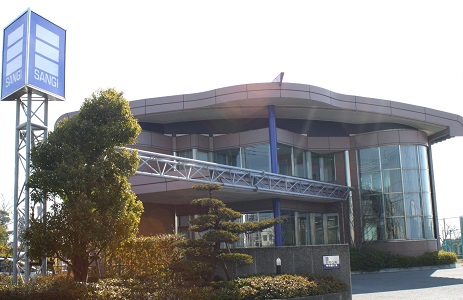RESEARCH & DEVELOPMENT
Originality and Flexible Approach
The primary emphasis in SANGI’s research is originality - to conceive, pursue and patent new ideas, moving beyond conventional wisdom to create truly innovative, previously unavailable products and technologies, and to develop new markets for them.
As a result, SANGI's Central Research Laboratory aims for complete flexibility. Leveraging our strengths, we carry out research not just in-house, but in conjunction with outside researchers, both corporate and academic, in a variety of fields, as well as funding external projects and providing scholarships for outside research. A key factor favoring our flexibility is that SANGI does not manufacture its own products, taking them only to the pilot plant stage.

Drug Delivery
Due to its strong biocompatibility in the human body, hydroxyapatite has been studied widely in drug delivery applications, chiefly for improved dose efficiency, via lesion targeting, and slow release, once the drug reaches the target site. SANGI’s drug delivery research, in contrast, is focused on improving the solubility and intestinal absorption of drugs that are currently poorly soluble and/or poorly absorbed, chiefly in Classes II and IV of the U.S. Biopharmaceuticals Classification System (BCS).
By coating such drugs with hydroxyapatite, SANGI's technology not only improves their solubility and absorption from the digestive tract, allowing them to be administered orally rather than intravenously, for which a visit to the hospital is usually required, but early indications are that it may improve drug effectiveness, and reduce the dose required and the level of side effects. This offers the promise, especially for cancer patients, of greater quality of life.
Hydroxyapatite Catalysts
Hydroxyapatite has a unique tolerance for fine tuning of its component elements while still maintaining its basic chemical structure. This offers a wide range of possibilities for its use as a catalyst in chemical engineering applications, depending on how the hydroxyapatite is prepared. SANGI’s catalytic research began in the 1990s with the synthesis of bio-gasoline, a product similar to high-octane fuel, from plant-derived ethanol.
This was followed by synthesis of a number of valuable industrial chemicals from environmentally friendly, biomass-derived raw materials, including n-butanol, used as a solvent and plasticizing agent, also derived from bio-ethanol, and acrylic acid, used in the production of super-absorbent polymers, derived from bio-based lactic acid. SANGI’s 'green chemistry' makes it possible to produce a number of important industrial chemicals without reliance on fossil-based fuels.